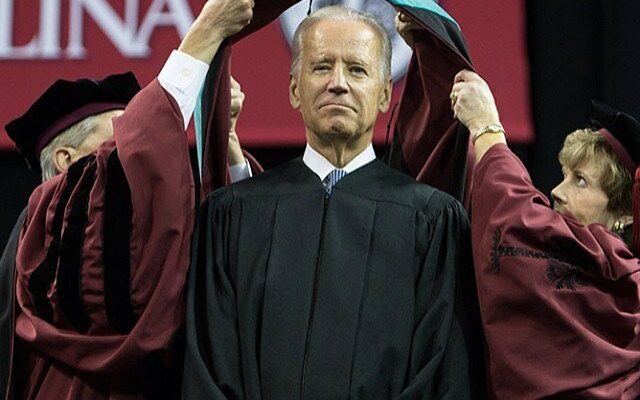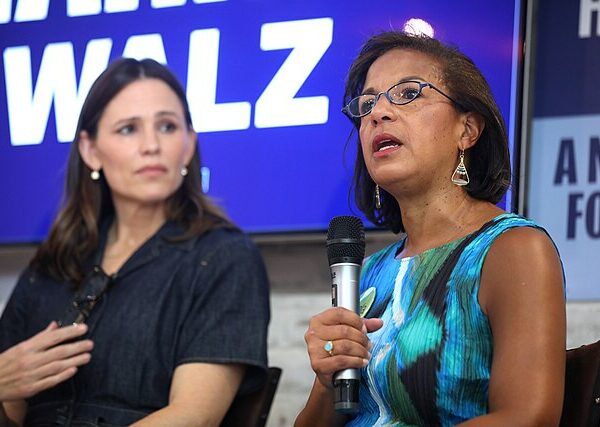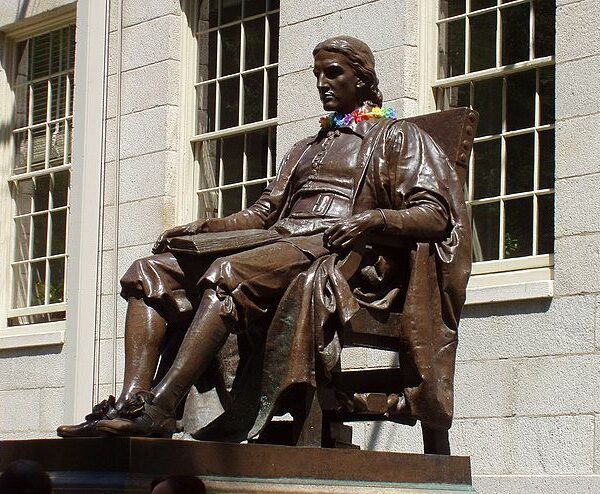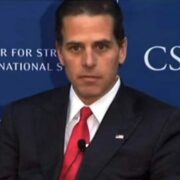
The Biden administration has gotten one thing down for sure. It knows how to light money on fire with little to nothing to show for it.
As part of the president’s plan to “build back better,” Congress passed the $1.2 trillion Infrastructure Investment and Jobs Act, allocating $42.5 billion to expand high-speed internet access in rural areas.
However, nearly three years after passage, not a single home has benefited from this funding, with project start dates pushed to 2025 or 2026 at the earliest.
The Washington Examiner reports that the president was recently lambasted by an FEC commissioner for the way he’s dragged his feet in helping those who often don’t vote for him.
“There hasn’t been a single shovel’s worth of dirt that has even been turned toward connecting people,” according to Federal Communications Commissioner Brendan Carr.
Project implementation was reportedly hampered by regulations requiring providers to prioritize “certain segments of the workforce, such as individuals with past criminal records” and to account for climate related risks both now and in the coming decades.
This revelation comes three months after another Biden dud relating to that November 2021 infrastructure bill. That bill included a $7.5 billion investment in electric vehicle charging and yet, as of March, that money has been turned into just seven charging stations. Biden had promised to build 500,000 charging stations by 2030. Currently, we are on pace for about 22.
This is a trend with Biden’s administration, making grand promises for billions of dollars on which the administration has no ability or intention to deliver. That was also made clear with the Inflation Reduction Act, which exploited people’s concerns about inflation to pass $430 billion in climate policies masked as an inflation bill. Biden later admitted, after the fact, that the bill had “less to do with reducing inflation,” which was fairly obvious when it made inflation worse.
In 2023, Biden denied Elon Musk’s Starlink system from receiving a subsidy to provide rural broadband, despite it being ready to go and working all over the world. The Federal Communications Commission said it “failed to demonstrate that it could deliver the promised service” The company currently beams internet access to 2.7 million subscribers across 75 countries.
When it comes to supporting leftwingers, however, the president knows how to put the pedal to the metal when it comes to spending money. The Examiner also noted that “the administration quietly funneled $50 million in taxpayer funds earmarked for clean energy to two groups that oppose immigration enforcement.
Sen. Shelley Moore Capito (R-WV), in her investigation of spending from the Inflation Reduction Act, found several instances of gross misuse of funds. The Environmental Protection Agency chose the New York Immigration Coalition and New Jersey Alliance for Immigrant Justice as partners to distribute $50 million of the $3 billion set aside in the IRA for environmental and climate block grants, the Wall Street Journal reported last week.
Instead, they adamantly support abolishing U.S. Immigration and Customs Enforcement, believe guarding borders is “racist and classist,” and want to block state and local government employees from cooperating with federal immigration officials, Capito said. These groups, regardless of anyone’s opinion on immigration, should not be receiving taxpayer dollars. When a group is so divisive in their messaging and not actually deeply dedicated to the cause they are receiving money for, they should not get any taxpayer funds.”
Another area where Biden has not shied away from sending his own supporters taxpayer cash has come in the form of “forgiving” student loans for mostly wealthy liberals who were not smart enough or poor enough to receive student aid from their universities.
An aide to Democratic Congresswoman Marcy Kaptur has gone viral after he posted a thank you tweet to the president for canceling over $8,000 in student loans he held, a sum he could apparently not pay back despite having a congressional student loan program, making over $80,000 a year in salary, and listing a home worth half a million dollars as his address.
The New York Post reported, Ben Kamens “had $8,250 in student loans dating as far back as 2010 forgiven by the Education Department’s Saving on a Valuable Education (SAVE) Plan, which is expected to bilk US taxpayers of $475 billion over the next 10 years.
The Kaptur spokesman netted around $80,000 in 2023, according to the congressional staff salary database on LegiStorm.
In Ohio’s Ninth Congressional District, which Kpatur represents, the median household income was $62,077, US Census Bureau data shows.
Kamens’ post had received more than 18.7 million views as of Thursday morning, with many netizens slamming the Kaptur aide and pointing out the address listed on the form was a half-million dollar house in Pennsylvania.
Others drew attention to his proud announcement on X last July that he was a Philadelphia Eagles ‘season ticket holder,’ which costs an average of $2,692 annually.”
Senior editor of The National Review Charles C. W. Cooke summed up most people’s feelings toward the news well:
No doubt the working people of America are thrilled to step in because, despite having received the service you took out the loan to buy, you couldn’t be bothered to pay off $8,250 in principal in fourteen years—which is $589/year. https://t.co/VZVA86U4Q2
— Charles C. W. Cooke (@charlescwcooke) June 19, 2024
Despite running on “defending democracy,” Joe Biden has bragged about how he has found ways to go around the Supreme Court’s blocking of his attempt to unilaterally hand out cash to his supporters.
Biden’s student loan scheme will contribute to a massive portion of the deficit he’s racking up this year, according to CNN.
“The federal budget deficit will hit $1.9 trillion this fiscal year, according to an updated projection released Tuesday by the Congressional Budget Office. That’s 27% – or $400 billion – larger than the agency estimated in February.
Most of the spike in the fiscal 2024 deficit stems from four factors that are expected to boost projected spending. The largest is a $145 billion increase due to changes the Biden administration made to student loan repayment plans and a new, proposed forgiveness program that would waive some accrued interest for millions of borrowers. The latter has yet to be finalized but could take effect as soon as this fall.”
[Read More: Department Of Justice Targets More Whistleblowers]











